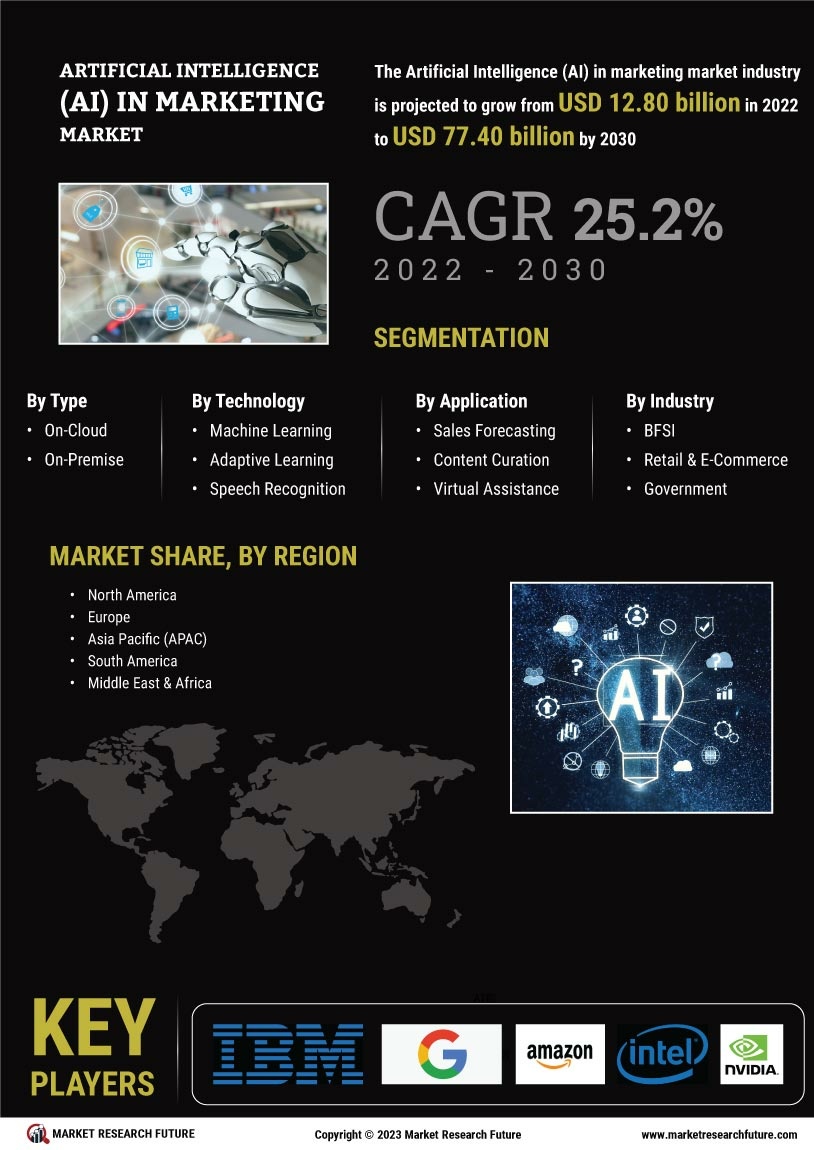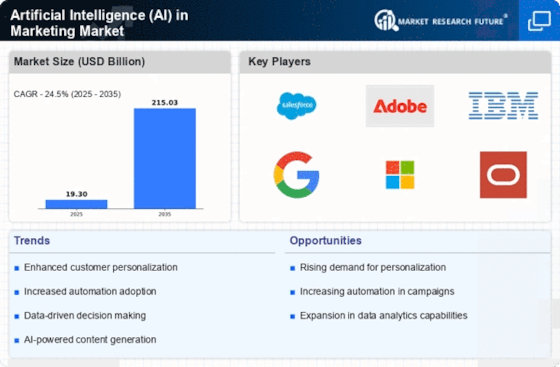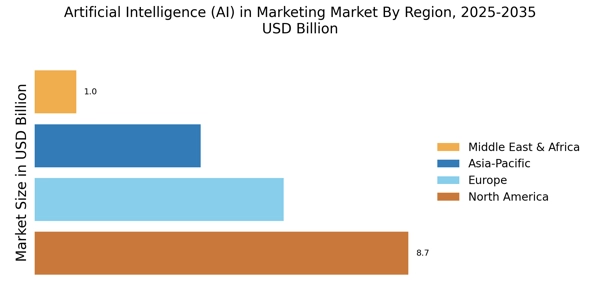The Artificial Intelligence (AI) in Marketing Market is currently experiencing a transformative phase, characterized by the integration of advanced technologies that enhance customer engagement and optimize marketing strategies. Companies are increasingly leveraging AI-driven tools to analyze consumer behavior, personalize content, and automate various marketing processes. This shift appears to be driven by the need for businesses to remain competitive in a rapidly evolving digital landscape. As organizations adopt AI solutions, they seem to be witnessing improved efficiency and effectiveness in their marketing efforts, which could lead to higher customer satisfaction and loyalty. Moreover, the market is witnessing a growing emphasis on data privacy and ethical considerations surrounding AI applications.
As consumers become more aware of how their data is utilized, businesses are likely to prioritize transparency and responsible AI practices. This trend suggests that companies may need to balance innovation with ethical standards to maintain consumer trust. Overall, the Artificial Intelligence (AI) in Marketing Market is poised for continued growth, with advancements in technology and a focus on ethical practices shaping its future landscape. Artificial intelligence in business is transforming marketing and content strategies by enabling data-driven marketing approaches and accelerating innovation across the global marketing technology landscape. The rapid adoption of AI marketing tools and generative AI platforms is shaping key digital marketing trends, allowing brands to automate content creation, personalization, and customer engagement at scale. Marketing automation platforms and marketing automation tools are widely adopted to streamline campaign management, while content marketing tools powered by AI enhance efficiency and consistency across digital channels.
Personalization at Scale
The trend towards personalization in marketing is becoming increasingly pronounced, as businesses utilize AI to tailor content and experiences to individual consumer preferences. This approach not only enhances customer engagement but also drives conversion rates, as targeted messaging resonates more effectively with audiences.
Advanced artificial intelligence tools are increasingly integrated into digital marketing platforms, including social media marketing tools, to optimize digital media marketing performance and customer outreach. Enterprises across retail, BFSI, and healthcare are leveraging AI tools for business to enhance online marketing and advertising strategies, improve customer targeting, and maximize return on investment. Recent AI marketing news highlights increased investments in marketing automation, with several major vendors launching new solutions, reflecting broader developments across digital marketing news channels. As organizations continue to invest in advanced marketing technology, AI-driven solutions are increasingly viewed as among the best artificial intelligence applications for driving measurable marketing outcomes.
The artificial intelligence market continues to grow at a rapid pace as businesses across marketing, retail, healthcare, and financial services increasingly integrate AI into their daily operations. Ongoing investments in advanced AI technologies are not only improving efficiency but are also shaping long-term growth across the global digital marketing ecosystem.
Predictive Analytics
Predictive analytics is gaining traction within the Artificial Intelligence (AI) in Marketing Market, enabling companies to forecast consumer behavior and trends. By analyzing historical data, businesses can make informed decisions about future marketing strategies, optimizing resource allocation and improving campaign outcomes.
Ethical AI Practices
As the use of AI in marketing expands, there is a growing focus on ethical considerations. Companies are recognizing the importance of transparency and responsible data usage, which may lead to the development of guidelines and best practices to ensure consumer trust and compliance with regulations.

















